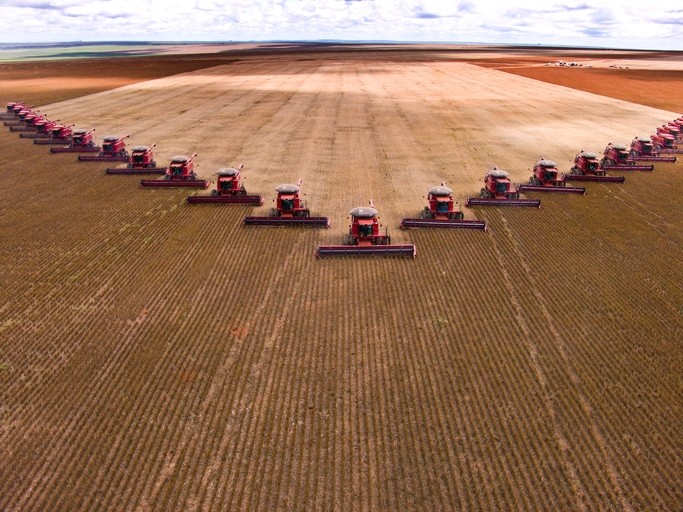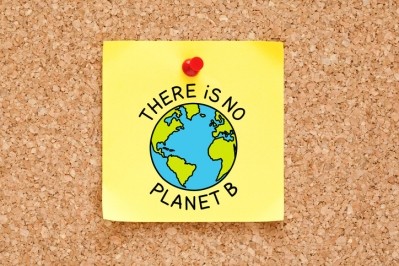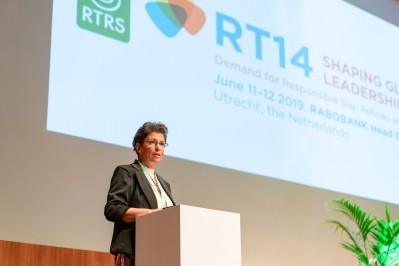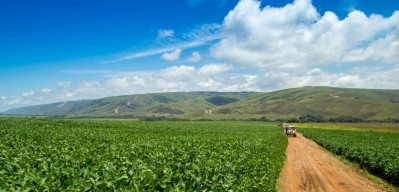Can public-private tie-ups end tropical deforestation?

“FEFAC took a conscious decision to get involved [in this committee] and we believe we can contribute a lot to this process. The timescale is ambitious. The expected process and timetable is intensive. We want to achieve a lot over the next two years - it fits well within the priorities of FEFAC,” Nick Major, FEFAC president, told us yesterday.
He was speaking about his role in a global steering committee recently launched by the Governors’ Climate and Forest Task Force (GCF) to support the Balikpapan Challenge.
That group is aiming to be the driver behind 'connecting supply chain initiatives with jurisdictional approaches' in an effort to tackle commodity-linked tropical deforestation in producer countries such as Colombia, Brazil, Indonesia, Peru and Mexico. The steering committee wants to support strategies already under development in GCF countries and work to link those efforts with regional and international processes, such as the Accountability Framework and TFA2020.
“FEFAC has been involved in the discussions on the aims and objectives of the Balikpapan Challenge from the beginning, at a meeting along the sidelines of COP 23 in Bonn in November 2017 and at the first meeting of the newly convened global steering committee on March 28.
"The Balikpapan Challenge specifically seeks synergies between the private sector including corporate supply chain pledges, sustainability certification schemes and jurisdictional programs to reduce deforestation. To meet its objectives requires cooperation between public and private sector stakeholders at multiple levels,” said Major.
Which commodities are the focus?
In terms of the commodities being evaluated, he said the coalition’s objectives are to reduce emissions from deforestation and forest degradation so that definition would include any commodity that may influence that.
“From a feed industry perspective, of course, this largely means soy and, to a lesser extent, palm oil.”
Major said there are two pillars to the Balkpapan Challenge, the first one focuses on indigenous peoples and local communities and the second, in which FEFAC is involved, on agricultural production and tropical deforestation. The second pillar is focused on “defining harmonized definitions for legal, zero and zero net deforestation and how to make jurisdictional approaches effective in tackling tropical deforestation.”
In terms of whether both legal and illegal forms of commodity linked deforestation are being considered by the group, he told us:
“Eliminating illegal forms of commodity linked deforestation is a prerequisite and why the FEFAC soy sourcing guidelines include a mandatory requirement for no illegal deforestation. However, there is interest from many stakeholders on developing deforestation free supply chains, which means either zero deforestation from a certain cut-off date or zero net deforestation where losses of native forest is matched, in the same area, by regeneration and restoration.”
Governors’ Climate and Forest Task Force (GCF)
The GCF describes itself as an alliance of subnational governments working together to reduce emissions from tropical forest deforestation and link these efforts to sustainable supply chain efforts while improving rural livelihoods and the rights of indigenous peoples.
The GCF says it embodies the notion that subnational governments - states and provinces, but also municipalities, districts, and villages - provide critical opportunities for policy innovation and leadership. "This is especially true in the areas of climate and land-use policy, where states and provinces (and other subnational governments) have long served as important laboratories for new policy initiatives and activities that inform and support robust national approaches."
It says it was founded upon the notion that successful efforts to protect forests, reduce emissions, and enhance livelihoods must be based on jurisdiction-wide programs rather than on individual projects and activities. "As articulated and advanced by the GCF since its inception, the jurisdictional approach provides a key platform for cross-sectoral policy alignment and for bringing multiple public and private sector activities together into a comprehensive approach to low emissions rural development."
The GCF says it embraces a network approach to governance across multiple scales. This includes the GCF itself, which encourages learning, provides training, and increases collaboration across its network of member states and provinces; the broader network of international institutions, governments, civil society actors, private sector entities, and communities that are cooperating on various activities and initiatives related to low emissions development.
Soy sourcing guidelines
The European feed industry is one of the largest markets for soy, one of the commodities often associated with deforestation and biodiversity loss in producing countries like Brazil.
“Soy is a strategically important raw material for the feed industry in Europe and, for the foreseeable future, we will rely on imports. That is why responsible sourcing is incorporated into FEFAC’s 2030 vision.”
The EU feed industry representatives developed soy sourcing guidelines in 2015.
“We recently held another round of meetings in Brazil with MOU signatories - FEDIOL, ABIOVE, AproSoja and IDH. It is so important to include local producers in these initiative,” said Major in relation to the discussions held with those stakeholders earlier this month on benchmarking against the FEFAC guidance.









